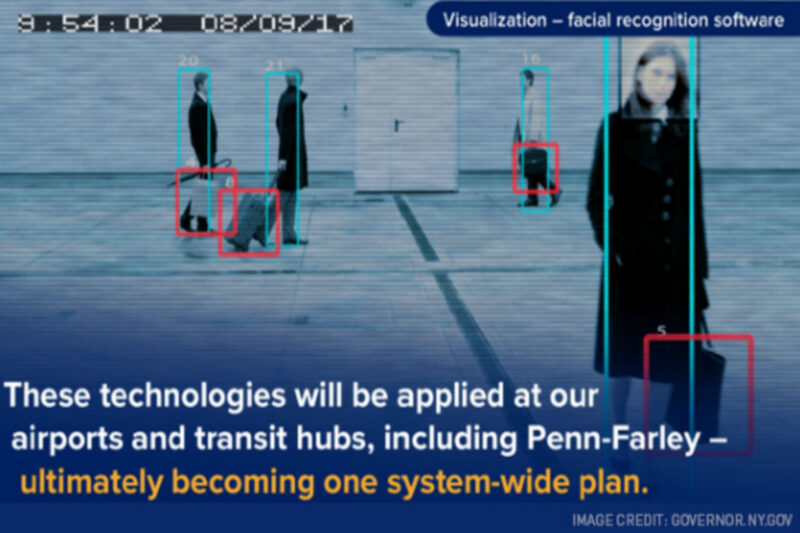
Tucked into Gov. Andrew Cuomo’s presentation on his $100 billion plan to invest in the state’s infrastructure last week was an initiative that will put New Yorkers’ privacy in peril.
Part of Cuomo’s plan to “reimagine New York’s crossings for the 21st century” calls for installing controversial advanced cameras, license plate readers, and facial recognition technology in New York’s airports and other transportation hubs. The plan also will install sensors and cameras at “structurally sensitive” points on bridges and tunnels.
This is a transformative surveillance system — one that has the potential to put thousands and thousands of people's images and data in a massive database that could be easily misused by the government in ways we haven’t even imagined yet. It’s also not yet clear how the information will be stored and who will have access to it. What is clear is that there is an enormous risk that innocent people will be misidentified as terrorists, especially people of color. That’s because facial recognition technology, while certainly not error proof generally, is much more likely to misidentify minorities. A 2012 study, highlighted by the Atlantic, for example, found that a facial recognition algorithm failed to identify the right person nearly twice as often when the photo was of a Black person.
The other technologies touted by Cuomo are far from harmless as well. Just ask Robert Harte how police use of license plate readers can go awry. A SWAT team in Kansas raided Harte’s house where his wife, 7-year-old daughter, and 13-year-old son lived based in part on the mass monitoring of cars parked at a gardening store. Harte was held at gunpoint for two hours while cops combed through his home. The police were looking for a marijuana growing operation. They did not find that or any other evidence of criminal activity in Harte’s house.
It’s also important to understand that these technologies have a way of creeping towards ubiquity. It starts with a camera here or a license plate reader there, but soon they are everywhere. And just as important, Gov. Cuomo’s plan sets a disturbing precedent that could be followed by other states.
We are taking one step closer to the dystopian world of Minority Report without any discussion of the serious privacy concerns that are implicated.
Stay informed
Sign up to be the first to hear about how to take action.
By completing this form, I agree to receive occasional emails per the terms of the ACLU's privacy statement.
By completing this form, I agree to receive occasional emails per the terms of the ACLU's privacy statement.


